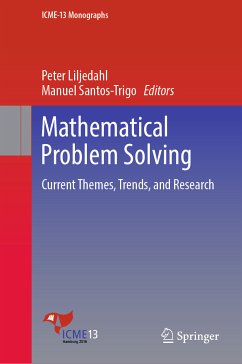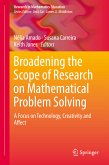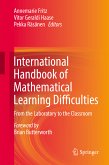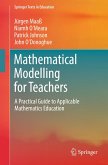Mathematical problem solving has long been recognized as an important aspect of mathematics, teaching mathematics, and learning mathematics. It has influenced mathematics curricula around the world, with calls for the teaching of problem solving as well as the teaching of mathematics through problem solving. And as such, it has been of interest to mathematics education researchers for as long as the field has existed. Research in this area has generally aimed at understanding and relating the processes involved in solving problems to students' development of mathematical knowledge and problem solving skills. The accumulated knowledge and field developments have included conceptual frameworks for characterizing learners' success in problem solving activities, cognitive, metacognitive, social and affective analysis, curriculum proposals, and ways to promote problem solving approaches.
Dieser Download kann aus rechtlichen Gründen nur mit Rechnungsadresse in A, B, BG, CY, CZ, D, DK, EW, E, FIN, F, GR, HR, H, IRL, I, LT, L, LR, M, NL, PL, P, R, S, SLO, SK ausgeliefert werden.
Hinweis: Dieser Artikel kann nur an eine deutsche Lieferadresse ausgeliefert werden.









